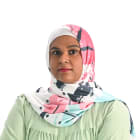How chess can break barriers for children with disabilities, one game at a time
The federation has plans to teach the game to more children with disabilities, and work with the International Chess Federation to stage a para-chess event in 2025.

German chess grandmaster Thomas Luther, the training director for Singapore Chess Federation, played with 10 players at the same time during a para-chess showcase.

This audio is generated by an AI tool.
SINGAPORE: More youth with disabilities should be exposed to chess, given its ability to break barriers and build self-confidence, said the CEO of the Singapore Chess Federation.
“We should have kids with disabilities learning chess at a young age and growing to love the game,” Mr Kevin Goh said at a para-chess showcase held last week.
“We have seen many successful programmes (on chess for people with disabilities) in many countries. Singapore is not one of them. I feel like we should try to do more,” he added.
While there is a weekly para-chess programme held in Singapore, it draws only a small group, he said.
“It has always struck me that we should be doing a lot more,” said Mr Goh, a Singaporean chess grandmaster who has been at the helm of the federation for about two years.
To that end, there are plans to teach the game to more children with disabilities and work with the International Chess Federation to stage a para-chess event in 2025.
ANYONE CAN PLAY CHESS
“Chess is a very inclusive game - there is absolutely no reason why we do not have a strong, sustainable training programme to help young kids with disabilities to learn the game,” said Mr Goh.
“Hopefully chess can bring them the benefits that can allow them to grow in confidence and eventually be able to contribute to society.”
Part of the inspiration to expand training programmes to persons with disabilities is German chess grandmaster Thomas Luther, the training director for the Singapore Chess Federation.
Mr Luther - who was born with dysmelia, a condition that left him with under-developed arms - was the first chess player with a disability to break into the world's top 100.
Disabilities do not impact a chess player’s abilities, and all that matters is knowing the rules, said Mr Goh.
He pointed out that this means there is no need for segregation, with people with disabilities able to play alongside able-bodied competitors.
This is exactly what will happen at the upcoming international chess competition Singapore International Open that will kick off on Friday (Nov 29).
With a wider talent pool, Singapore hopes to boost its performance on the international stage, while making strides in inclusivity.

GETTING MORE INTO THE GAME
Organisers hope such competitions will attract more children with disabilities to the game and build their confidence for life.
"The dream is really to have a strong sustainable framework that we could continuously bring chess to - perhaps schools with special needs, organisations that serve kids with disabilities - and to have sound financial frameworks such that we can run this regularly and consistently,” said Mr Goh.
Mr Goh noted that at the World Chess Olympiad held every two years, blind and physically impaired chess players are paired with national teams.
“We might associate (chess) with something that we can see … and we can make moves and calculate in our minds,” he said.
“How about players who don't get to see the chess boards? How do they calculate? How do they train their ability to look several moves into the game? So, that's very inspiring.”
Among those who have benefitted from picking up chess is 10-year-old Audelle Sim, who is hearing impaired in both ears.
She was among 10 players - five with disabilities and five able-bodied - who played against Mr Luther during the para-chess showcase.
“Chess has helped me focus (and) think better,” she said.


















